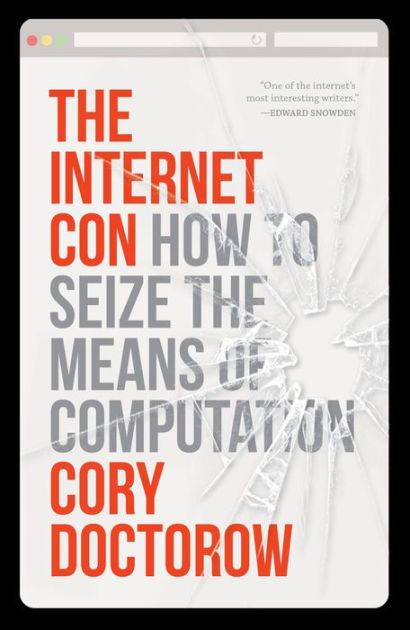laundry0099@bookwyrm.social reviewed The Internet Con by Cory Doctorow
Review of 'The Internet Con' on 'Storygraph'
4 stars
I consider myself pretty well versed in the shortcomings of capitalism, but this book still managed to shock me time and time again with tales of the brazen greed of tech companies over time. It was an easy read, which I appreciated, and I greatly enjoyed the conversational and sometimes colorful tone of writing.
Yet even though the author said multiple times that he would explain how we go about fixing the problems of Big Tech, he never really did. That is, unless I somehow figure out how to suddenly make Congress listen to me instead of a huge corporation, or learn how to reverse-engineer my own social media company. Nevertheless, it’s a great read, and one that more people probably should.



